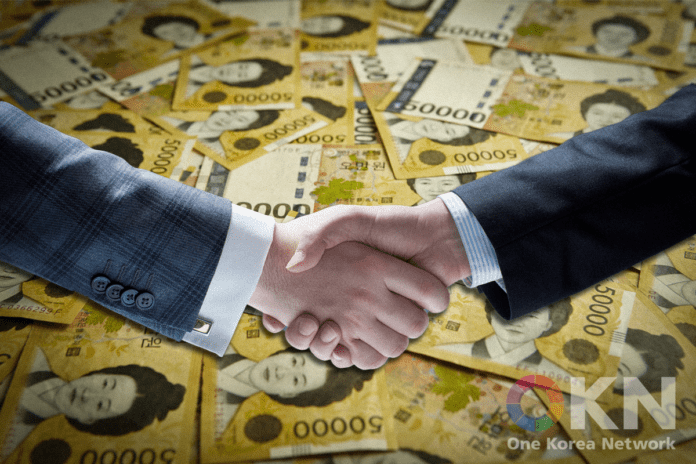Millions were spent promoting pro-North diplomatic policy
A new report revealed that South Korea was one of the top three countries lobbying the United States from 2016 to September 2021. The amount of money spent on lobbying by South Koreans increased significantly during this period, which was mostly during the current Moon Jae-in administration. Many are pointing fingers at the Moon administration for trying to buy support in Washington.
South Korean conservatives are worried that the government, its state-run institutions, and the private sector is pouring money into the United States to spread problematic ideas such as President Moon’s so-called Korean Peninsula Peace Process, which legitimizes the North Korean dictatorship.
Thae Yong-ho, a former senior North Korean diplomat and current lawmaker from the main opposition People Power Party (PPP) recently acquired data related to lobbying funds spent in the United States by South Korea, Japan, and China, which turned out to be the top three lobbying countries in lobbying spending. The data was provided by the National Assembly Research Service.
According to the Monthly Chosun magazine, which reported the data provided by Rep. Thae, Japan spent $210.2 million from 2016 to 2021 and was the top lobbyist. It was followed by China with $185.2 million and South Korea with $172.2 million.
In 2017, South Korea spent $31 million on lobbying the United States, which includes $14.4 million from the government and $16.6 million from private entities. The figure rose to $41.12 million ($18.05 million from the government and $23.07 million from the private sector) in 2018. In 2019, the figure dropped slightly to $36.58 million ($27.02 million from the government and $9.56 million from the private sector). However, this shows that government spending on lobbying continued to grow during the Moon Jae-in administration. In 2016, South Korea spent $33.77 million on lobbying in the United States. Government spending accounted for $6.93 million that year, but it jumped to $14.4 million in 2017. Moon Jae-in came to power in May 2017.
Starting in 2020, the spending on lobbying dropped. The figure for 2020 was $28.81 million ($9.63 million from the government and $19.17 million from the private sector), and the figure for 2021 as of the end of September was $2.51 million ($1.69 million from the government and $822,138 from the private sector).
The South Korean Foreign Ministry explained to the National Assembly Research Service that the purpose of lobbying in the United States is to “enhance strategic and special cooperative relations with countries in North America.” The South Korean government signed contracts with various U.S. lobbying firms for purposes such as public relations, lobbying, distribution of film, promotion of trade, promotion of investment, promotion of tourism, and consulting on U.S. policy, according to the foreign ministry.
The ministry explained that the key tasks of U.S. consulting firms who signed contracts with the government were related to consulting on the 2020 U.S. presidential election, expanding and enhancing relations with members of the U.S. Congress, and arranging trips to South Korea for the staff of U.S. lawmakers.
The foreign ministry also provided the number of U.S. lawmakers “who are favorable to South Korea,” per year. The list showed that 6 Senators and 81 Congressmen “supported Korea” from 2015 to 2016. From 2017 to 2018, it was 3 Senators and 81 Congressmen. And from 2019 to 2020, it was 3 Senators and 54 Congressmen, and it was 2 Senators and 34 Congressmen as of September 2021.
This was not the first time that lobbying-related data caused strong concern among South Koreans. In July last year, there were multiple media reports citing data provided by the U.S. based Center for Responsive Politics that showed the South Korean government and private sector spent $165.52 million from 2016 to mid-2020. It was followed by Japan with $156.98 million and Israel with $118.4 million. It was the first time South Korea ranked first, according to the research institution.
It is notable that South Korean government lobbying spending in the United States jumped nearly 10 times from 2016 ($6.33 million) to 2017 ($63.5 million).
The South Korean media quoted diplomatic sources as saying that a huge amount of lobbying funds was sent to persuade the United States to support Moon’s new policies, such as inter-Korean diplomacy and trade issues. They also pointed out that this statistic only included the amount of money that is officially reported to the U.S. government and released in accordance with the Foreign Agents Registration Act, and there could be more spending unknown to the public.
Experts cited in various media reports argued that the Moon administration is lobbying to make the United States relax its tough policies toward North Korea. A former diplomat who requested anonymity argued that “Japan and Israel who spent the second and third-most money established a close relationship with the United States, but South Korea failed to effectively improve relations with Washington and coordinate relations between Washington and Pyongyang.” The ex-diplomat argued that taxpayers’ money was wasted. Considering the current state of the U.S.-ROK relations, it is difficult to disagree.


